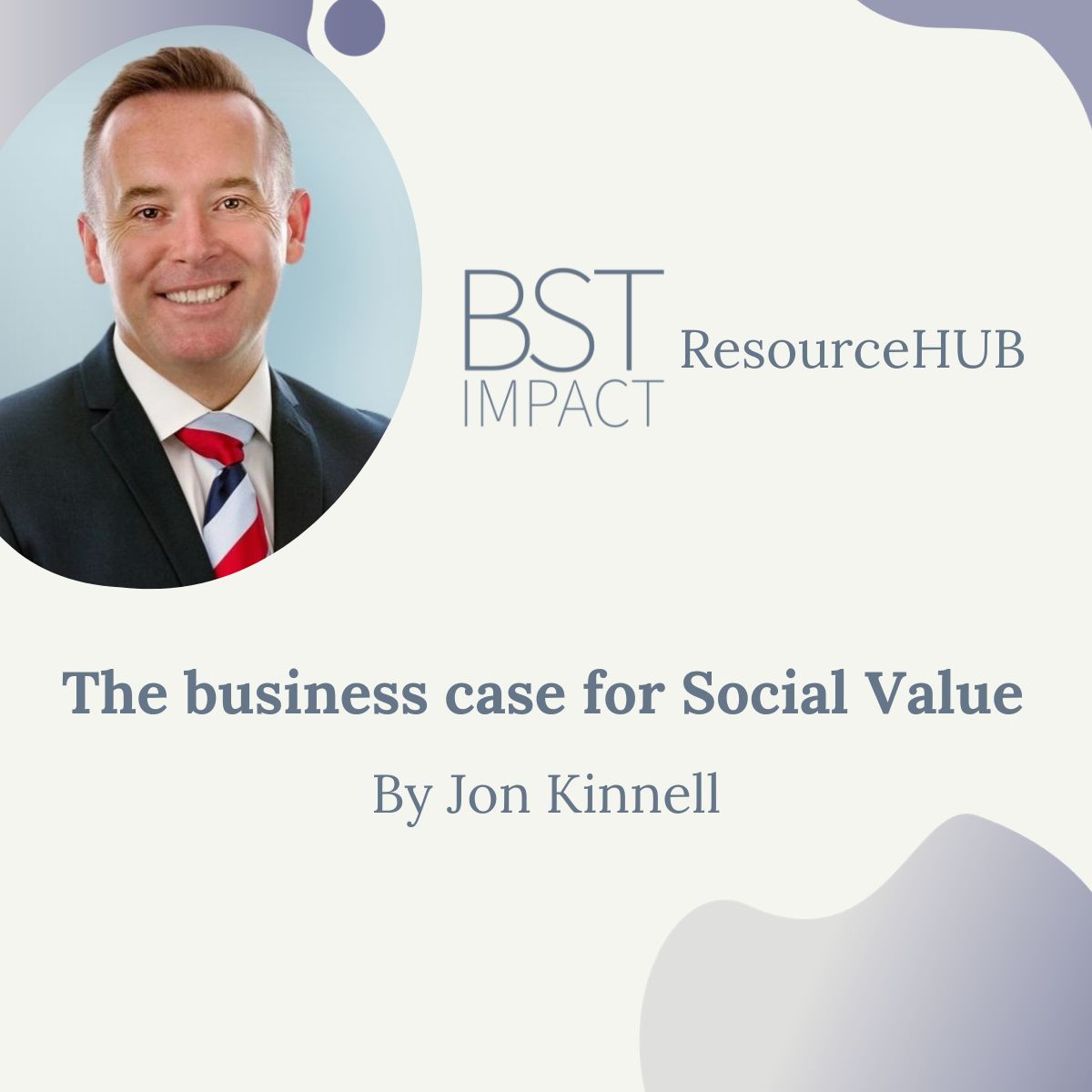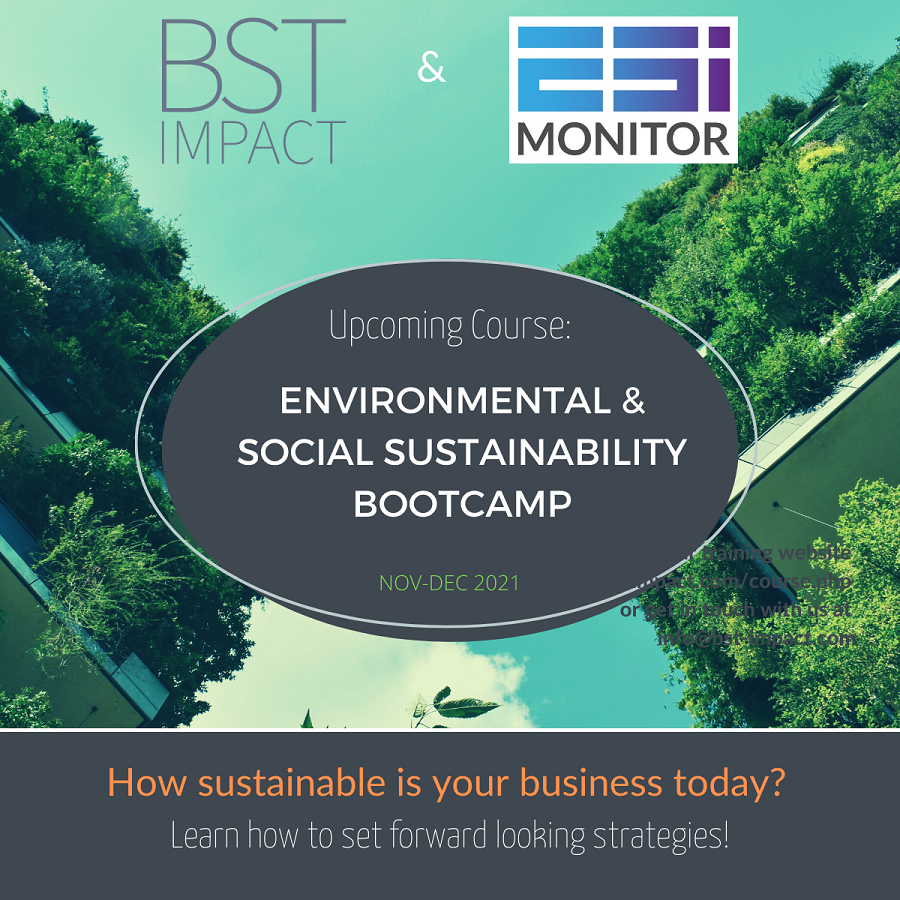
The business case for Social Value
In this insightful piece, our Team Member Jon Kinnell tells us about what is social value and countries regulatory requirements for it.
“What Gets Measured Gets Done - The rise of social value and it’s importance within ESG”
In 2022 Social Value celebrated a milestone – 10 years of generating added value for communities. Driven by champions such as Hazel Blears, Chris White, Lord Newby, and the LGA. An achievement which has since delivered in excess of 122 billion in social value to communities.
Since the Public Service Act was introduced in 2012, local government organisations have been the driving force, embedding social value considerations as part of the procurements process. But, the initial act was only ever advisory, meaning very little accountability, sporadic implementation and management, resulting in a huge, missed opportunity. Let’s take a look at the numbers:
· Local Public Service procurement is now estimated at £70billion annually.
· UK Government procurement has now topped £379billion annually.
· Whilst corporate and public sector procurement has now topped £114billion annually.
Taking into account a 10% social value weighting – “where is this social value”? The outcomes and impact should have been transformational for the UK.
Against a backdrop of increasing pressure on public finances supporting the aftermath of COVID-19, an aging population, NHS and social care challenges, cost of living crisis, income inflationary pressures, and global political events. What was once advised to consider social value has now become a mandated requirement.
Policy notices issued in 2021 now mandate government bodies install social value within all procurement activity. A 10% minimum weighting outlining five core social value themes to help guide organisations towards desirable outcomes. Affected bodies must now have the right resources, policies, and procedures to create clear awareness around social value and how to record, measure and report their successes.
A decade on however, austerity has diminished available resources. Social value is often assigned to staff as a secondary brief, whilst comprehensive training is rare. A shortage of skills and accompanying understanding means that too few organisations record and report social value in a consistence and relatable approach. For the business hoping to win and retain work with the public sector, they must be cognisant of these changes and ready to demonstrate how they can deliver to the new regulations.
And herein lays the challenge – what gets measured gets done!
Measurable social value has become a global phenomenon ranging from the 2% cash levy in countries such as India and Indonesia, and many Islamic governments at 2.5%. Through tot 20% social inclusion ring fencing in the EU. And 30% tax in Australia for exploitation of non-renewable resources. The UK is part of a global movement in developing a social value strategy driven by legislation and procurement. The challenges of measuring social impact are the same whether at a global scale or locally. There are too many organisation to measure. A plethora of differing social impact metrics, not enough expertise, and these are too costly to achieve though goals using traditional techniques.
Let’s take a look at the numbers;
· There are over 1 billion companies in the world across the public, private, third, and community sectors.
· Over 1, 000 social impact metrics in the world.
· 250 million consultants require to audit annually.
· £3billion annual cost of social impact analytics.
Off course, plenty of local authorities possess a clear understanding of their social value objectives and a framework for how to realise them. Yet when it comes to procurement, communicating the right type of economic, environmental, and social objective to the supply chain is challenging. And at the heart of social value, there remains a misunderstanding. Many organisations consider it as an apprenticeship, an outreach programme, or charitable donations. This is merely the vehicle. Social value is actually the effect precipitated by this tool. It’s the extra trust in the local community, the new skills acquired by the apprentice, their increased confidence, and prospects. That’s the social good, as social value thought leaders we aim to transform.
In the UK, the 6th largest economy in the world by GDP (overtaken by India in 2022), has one of the poorest social mobility rates, where the link between lower socio-economic background and adult outcomes is stronger in the UK, than any other developed country. People with greater economic mobility have more choices available to them, and their families, than people with low economic mobility. At the same time, existing systems in society affect and compound economic mobility. According to the Equality Trust and Social Mobility Commission, that has real consequence for everyone – estimated to cost the UK £39billion annually, as unequal societies result in lower levels of productivity and life outcomes. Including mental health and life expectancy.
Improving mobility is therefore critical to improving equity and quality of life. We should consider digital inclusion as a social issue. A proven connection between local social mobility and digital capabilities. A lack of digital skills and access can have a huge negative impact on a person’s life, leading to poorer health outcomes and lower life expectancy, increased loneliness and social isolation, less access to jobs and educations. It can mean paying more for essentials, financial exclusions, and an increased risk of experiencing poverty. People who are digitally excluded also lack a voice and visibility in the modern world, as government services and democracy increasingly move online. What’s more, it’s those already at a disadvantage through age, education, income, disability, or unemployment, who are most likely to me missing out, further widening the social inequality gap, increasing the reliance on state support to exist.
Closing the digital divide provides business the impetus to focus social value efforts. Focussing on a needs led, place based, social value commitment. Social value strategy can seek a dynamic, co-production approach. Collaborating with local authorities, charity partners, and local social enterprise in supporting marginalised and minoritised, the economically inactive, and hard to reach. As part, we must also recognise young people are disproportionately affected and disadvantaged remaining further from the workforce.
Focussing interventions on digital capabilities and social mobility supports citizens in gaining professional experience. Developing a range of skillsets in closing the digital divide and improving social mobility. Improvements which helps shape sustainability strategy, prioritise activities, and ensures strategy, business plans, and capabilities are aligned. Also helps to integrate and strengthen Environmental, Social, and Governance (ESG) capabilities. Focussed on embedding social and environmental value and purpose within government delivery models.
Why is any of this important? Social value is important because it gets us to think through our actions, consider whether they add value to society and how they might impact on future generations. It helps us to be more socially conscious and responsible. However, rising expectations on corporate responsibility has made sustainable development more a necessity than a choice for business and investors. Commitments are now being followed by adaptation of business models, strategies policies, and complicate with regulators, The business of resilience, your approach to sustainability, begins with the question: ‘What environmental, social, and governance issues are relevant to your business and stakeholders.’?
From a climate perspective, LSE research identifies social value as the connector in our race towards net zero. The financial values involved are significant, to achieve net zero alone, capital investment in the UK will need to grow fivefold from £10billion annually in 2020, to £50billion annually in 2030. This is according to the climate change committee. Investment levels are expected to peak around 2035 remaining at £50billion annually through to 2050. For the UK’s transition to a net zero economy, two features of the social value framework stand our as being particularly value. Place based dimensions and the recognition of the interconnectedness of climate action and the wider social value imperative which makes up the social value guiding themes of;
· Skills and Employment
· Enterprise and Growth
· Social Wellbeing
· The Environment, and
· Innovation
This will deliver significant environment and social benefits, but also real economic gains, not least in terms of reduced energy and resource consumption. Taken together, this extra capital expenditure is expected to amount to well over £1trillion between now and 2050.
The climate for public sector organisations could not be more difficult. Increasing non-statutory social costs set against rapidly decreasing budgets, have led to crisis. Most western economies, including the UK, still face many years of pressure on public spending. Governments are increasingly looking for blended solutions. Bringing together the public, private, and third sectors to make limited public funds go further. Such blended solutions are not easy to make work.
The business case is clear, public sector organisations have a large number of organisations registered within their supplier portals. At a time when local authorities are struggling to deliver non-statutory services such as parks, libraries, leisure centres, arts, voluntary organisations, charities, mental health units, community centres, health centres, etc. Services under threat due to funding shortages within he public sector. Social value can be used to bring resources to these non-statutory services in a significant transformation of the landscape, Any implementation of social value has to be conducted in social to have any effect. The basic paradigm being the matachin of private sector agenda and resources to third sector organisations to empower the community and lift the heavy burden off public sector organisations.
About Jon Kinnell: Jon is BST Impact’s Head of Private Clients and Impact Philanthropy. With over 15 years of experience operating at the interface of wealth management and sustainability, he is an expert in values-based Impact Philanthropy and in accelerating ambitious start-ups, SMEs, and highly impactful social organisations, including NGOs, designing impact strategies aligned to more responsible capitalism at an individual and organisational level.







